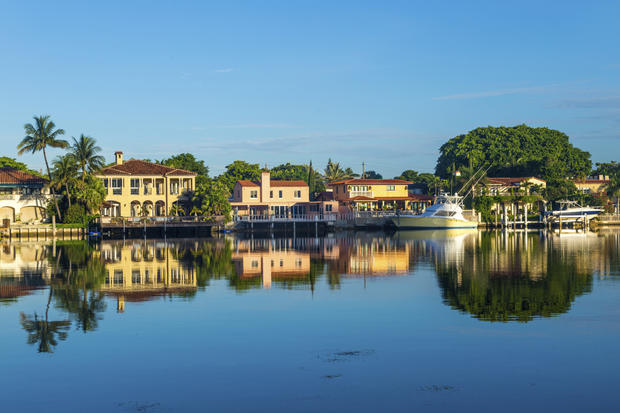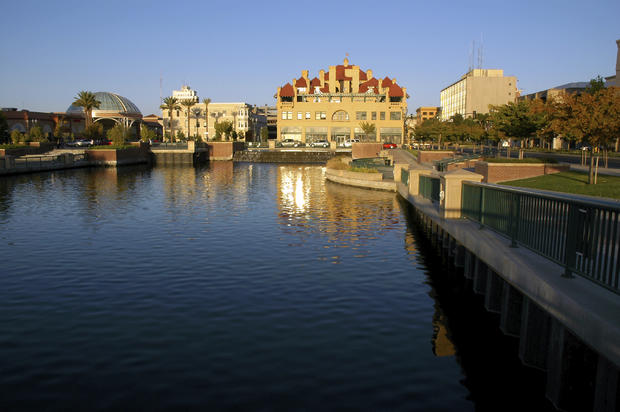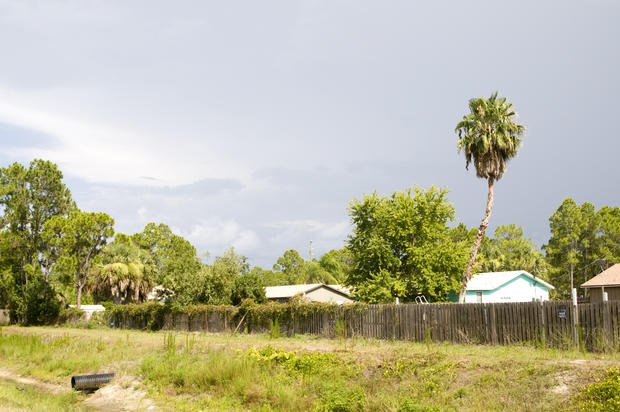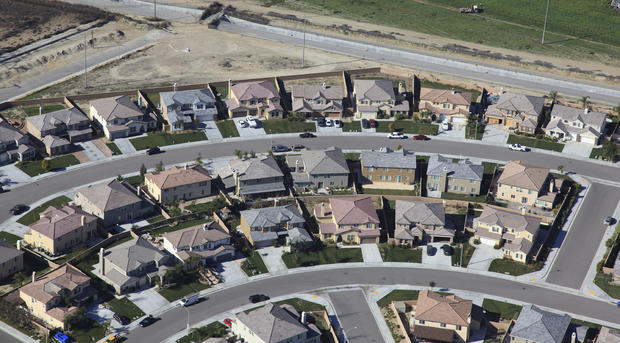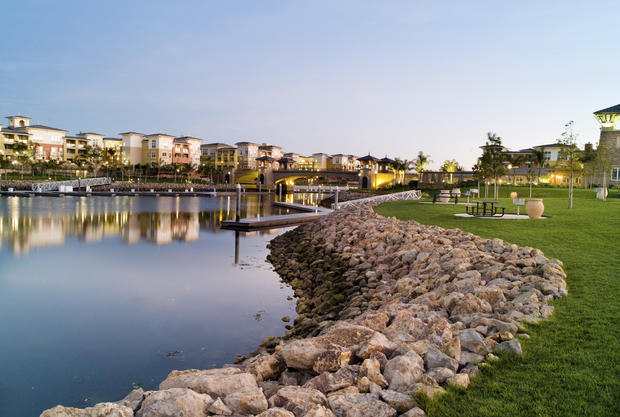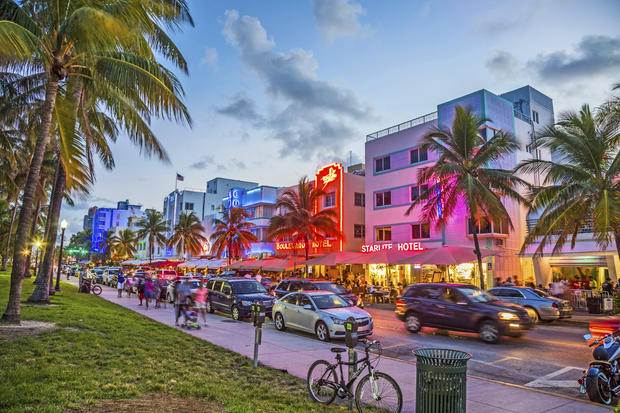The 9 hottest housing markets in the U.S.
It's no secret that U.S. home prices have rebounded from their recession lows, to the extent that some people are wondering if we're in a new real estate bubble.
The most recent data from the S&P/Case-Shiller U.S. National Home Price Index, which looks at all nine U.S. census divisions, noted both its 10-city and 20-city composites had year-over-year gains of 4.7 percent and 5 percent, respectively. Home prices also had 35 straight months of gains as of May, with the San Francisco and Denver metro areas reporting the highest increases over the past 12 months.
But some housing markets are more competitive than others. FindTheHome.com has come up with its own list of the most competitive housing markets -- which it defines as a market appealing to both buyers and sellers, that has grown substantially over the past year and that is expected to continue that growth in the year ahead.
The site also analyzed data regarding one-year price growth forecasts, price growth over the past year, median sales prices and average days on the market
With all that in mind, click ahead to see FindTheHome's nine most competitive housing markets of 2015.
9. Fresno Metro, California
1-year price growth forecast: 10.03 percent
Median home sale price: $217,250
Price change over past year: 4.19 percent
Average days on market: 40 days
A Brookings Institution report issued earlier this year listed Fresno as one of the ten fastest growing cities in the U.S. And the real estate web site Trulia.com says the average listing price for real estate in the city is up 4.7 percent, week-over-week, compared to last year.
Located in California's Central Valley, Fresno is seeing new outside investment, thanks in part to its being a planned stop for the state's ambitious high-speed rail project. The city's non-agricultural job rate is rising. And compared to California's better-known coastal metro areas, real estate in Fresno remains relatively available and affordable.
8. Stockton Metro, California
1-year price growth forecast: 10.73 percent
Median home sale price: $262,000
Price change over past year: 4.62 percent
Average days on market: 34 days
The second-largest U.S. city, after Detroit, to declare bankruptcy, Stockton's economy was hard hit by the collapse of the national real estate bubble. The northern California city exited from Chapter 9 protection earlier this year, and like other municipalities in California's agriculture sector-dominated interior is dealing with the economic and social effects of the state's devastating drought.
But California's recovery from the recession is helping job growth in Stockton -- where unemployment rates are expected to fall into the single digits next year. Housing prices in Stockton, meanwhile, remain a relative bargain. As of last year, according to Thomas Thibodeau, academic director of the University of Colorado Real Estate Center, the city's nominal house prices were still more than 32 percent below than their 2007 levels.
7. Palm Bay Metro, Florida
1-year price growth forecast: 11.25 percent
Median home sale price: $127,500
Price change over past year: 12.31 percent
Located on Florida's Space Coast, Palm Bay is part of a region that's rebounding from six straight years of declining real estate values. The Palm Bay and Orlando metro areas, according to RealtyTrac, led the nation in the first quarter of 2015 for real estate owned (REO) sales; that is, sale of a property that is actively bank-owned.
And while it was rated last year as one of Florida's most boring cities in a blog post, Palm Bay housing has become a red-hot commodity in recent months.
"Palm Bay was one of the hardest-hit markets in terms of foreclosures and short sales," Lynn Whelpley, with the Space Coast Association of Realtors, told Florida Today late last year.
"I've noticed that the foreclosures here are down," she added. "We're seeing a lot more traditional sales. It's bringing more stability to the market, and when you have a more stable market, people have more trust in the system, and they're more willing to buy and sell homes."
6. Riverside Metro, California
1-year price growth forecast: 11.75 percent
Median home sale price: $280,000
Price change over past year: 4.91 percent
Average days on market: 54 days
The economic recovery in inland Southern California has picked up speed this year, and Riverside has been one of its beneficiaries.
"What I think you're seeing is a combination of a lot of good things all at once," Rich Simonin, co-owner of Wescoe Realtors in Riverside, told the city's Press Enterprise newspaper. "You've got low rates and better economic news. The flipper investors are basically gone. What you have in this market are real buyers, real sellers."
"Sales activity picked up last month, making it one of the stronger Aprils since the housing bust, though sales remained below average," Andrew LePage, a data analyst for CoreLogic told Patch.com in May.
LePage also noted that, given the tight housing inventory in the region, many potential buyers in the region are finding "credit and affordability hurdles" in this competitive market.
5. Sacramento Metro, California
1-year price growth forecast: 13.33 percent
Median home sale price: $300,000
Price change over past year: 5.73 percent
Average days on market: 31 days
California's capital city is enjoying a post-recession real estate boom. Median sales prices for all of Sacramento County reportedly reached a seven-year high earlier this year.
CoreLogic analyst Andrew LePage tells the Sacramento Bee that housing price strength also means a relatively limited housing inventory in the region, as well as few sales of distressed homes -- making the city especially "tough for first-time buyers."
That being said, the city is still attracting potential home buyers. U-Haul recently listed Sacramento among its Top Ten destination cities, based on the number of one-way U-Haul rentals.
4. San Francisco-Oakland-Fremont Metro, California
1-year price growth forecast: 14.17 percent
Median home sale price: $825,000
Price change over past year: 9.7 percent
Average days on market: 25 days
The Bay Area has long been known for its notoriously high housing and rental prices. With a booming regional economy (think Silicon Valley) and a very low inventory of available and affordable housing, the Bay Area remains financially out of reach for many potential home buyers.
The lack of affordable housing in the region has become a social issue as well. Earlier this month, despite calls from local activists, San Francisco's Board of Supervisors rejected a proposed, temporary moratorium on luxury housing in the city.
"There's almost no example you can come up with now, that isn't too extreme of how expensive it is to live and do business in San Francisco," Joe Eskenazi of San Francisco Magazine recently told CBS station KPIX-TV.
3. Oxnard Metro, California
1-year price growth forecast: 14.2 percent
Median home sale price: $469,500
Price change over past year: 4.17 percent
Average days on market: 42 days
Touted as "Hollywood by the Sea" a century ago, Oxnard has become a star in its own right when it comes to housing prices and availability.
"It's really all about the economy," Bob Nahm, secretary-treasurer of the region's Channel Island Harbor Foundation, told the Pacific Coast Business Times.
"A lot of the projects that were started in the early 2000s got dropped when the bottom fell out of the market," he noted. "Now those projects are back and some have new developers that think they can make it work ... there's a good vibe here that things are finally going to happen."
But that good vibe may not last much longer. Real estate valuator Clear Capital recently cited Oxnard as one of seven U.S. housing markets that have reached their peak.
2. San Jose Metro, California
1-year price growth forecast: 14.64 percent
Median home sale price: $770,000
Price change over past year: 12.99 percent
Average days on market: 8 days
The Silicon Valley tech boom has made San Jose a red-hot housing market. Tight housing inventory and the continuing flood of people into the region, looking for high-paying tech jobs, has also made real estate a contact sport -- with would-be buyers vying on occasion against scores of competing bids.
"The market is still very strong, but the buyers are a little tired, the ones that have been competing," Margaret Garber-Teeter, an agent with Alain Pinel realtors, recently told the San Jose Mercury News.
1. Miami-Fort Lauderdale-Miami Beach Metro, Florida
1-year price growth forecast: 23 percent
Median home sale price: $198,800
Price change over past year: 8.39 percent
Average days on market: 70 days
A strong economy, coupled with an influx of overseas buyers, has given the region the dubious title of the nation's most competitive housing market.
Data compiled by the real estate research firm CoreLogic found as many as 70 percent of total home purchases made in the metro Miami area in early 2012 were cash sales, or nearly double the national average.
And the Miami Association of Realtors says single family home sales have been especially strong in recent months.
"The continued stability in Miami's job market and low interest rates are improving buyer confidence," Christopher Zoller, the association's residential president, recently told PropertyWire.com.
"Not only are we seeing more single family home sales in Miami, but we are seeing more homes and condos listed as seller confidence grows."
But all that competition is making it especially hard on young, first-time home buyers.
"If you want to live somewhere nice, somewhere that's close to your job, easy to get to, close to the bars, you can't find anything," 24-year-old Raymond Pereira recently lamented to the Miami Herald.
